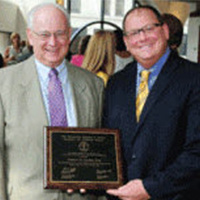West Valley RICO Act Lawyer, New York
Sponsored Law Firm
-
 x
x

Click For More Info:
-
The Law Offices of Richard L. Cooper, P.A.
848 Brickell Avenue Suite 800 Miami, FL 33131» view mapDWI/DUI, Drug Trafficking, Felony Nationally Ranked Top 40 Under 40
With Richard L. Cooper you can expect a trusted confidant who will work diligently to fully understand your case and determine a road map to help you regain control of your life.
800-756-2781
Not enough matches for West Valley RICO Act lawyer.
Below are all West Valley Criminal lawyers.
Anthony M. Bruce
✓ VERIFIEDMr. Bruce’s legal career has focused on criminal litigation. For 37 years, Mr. Bruce worked as Assistant United States Attorney in the United State... (more)
Dominic Paul Candino
✓ VERIFIEDPersonal injury and criminal law is a complex collection of ever-changing legislation and case law. Many of those injured by a third party's negligen... (more)
Paul Becker
✓ VERIFIEDPaul B. Becker, Esq. is committed to providing you with top notch legal services. I approach every client with a focus on integrity, advocacy, and und... (more)
Karl Martin Myles
✓ VERIFIEDMy Web designer told me that I had to provide him with more information on myself to explain to people better who I am. Specifically he said for me to... (more)
Derek Akiwumi
✓ VERIFIEDDerek Akiwumi, representing clients throughout WNY, has a proven reputation for getting the results you need. From criminal defense, appeals, and pers... (more)
Gary A. Joseph
FREE CONSULTATION
CONTACT
 Richard L. Cooper Miami, FL
Richard L. Cooper Miami, FL AboutMiami Attorney at Law
AboutMiami Attorney at Law ServicesCriminal Defense
ServicesCriminal Defense





